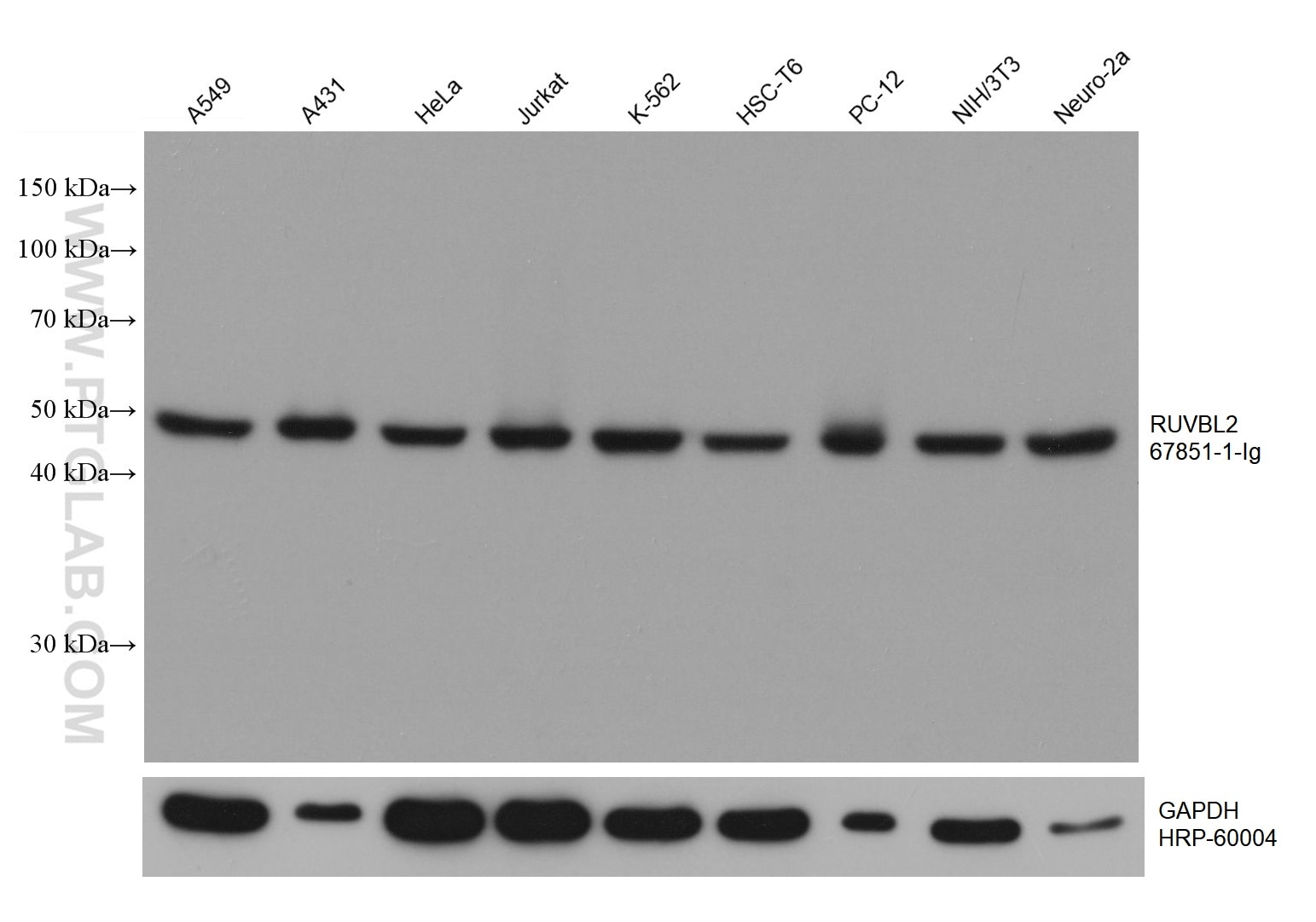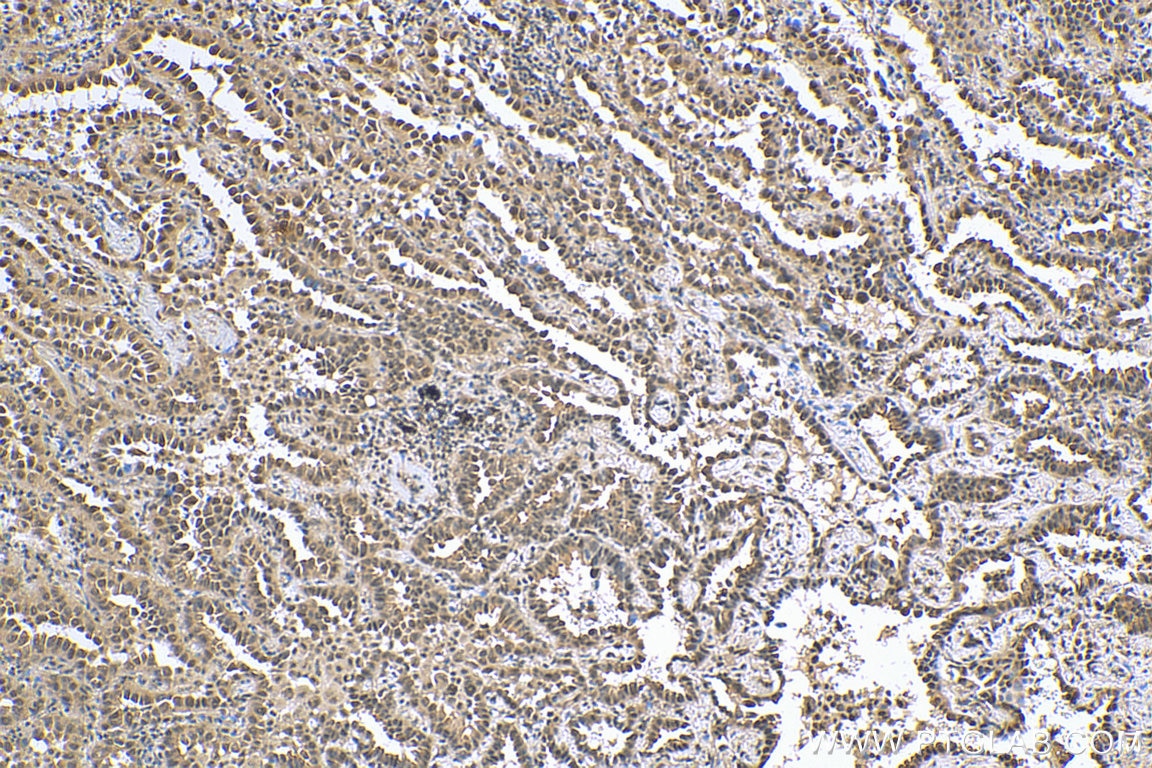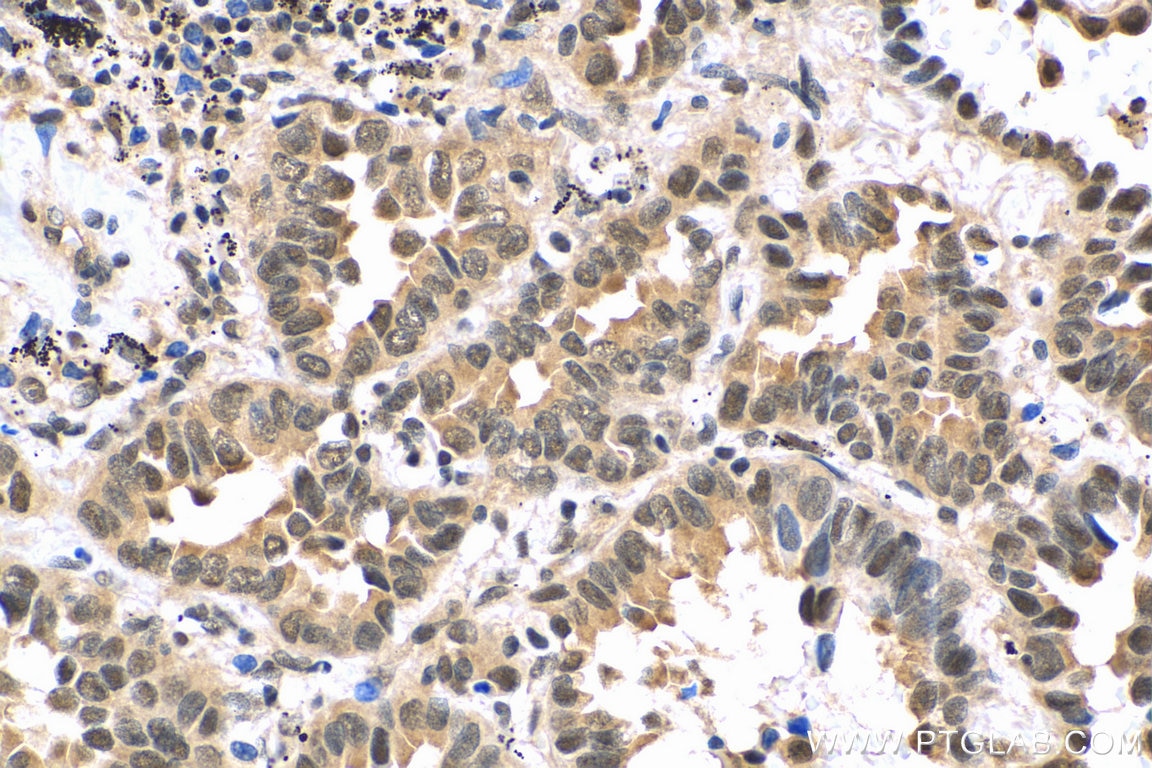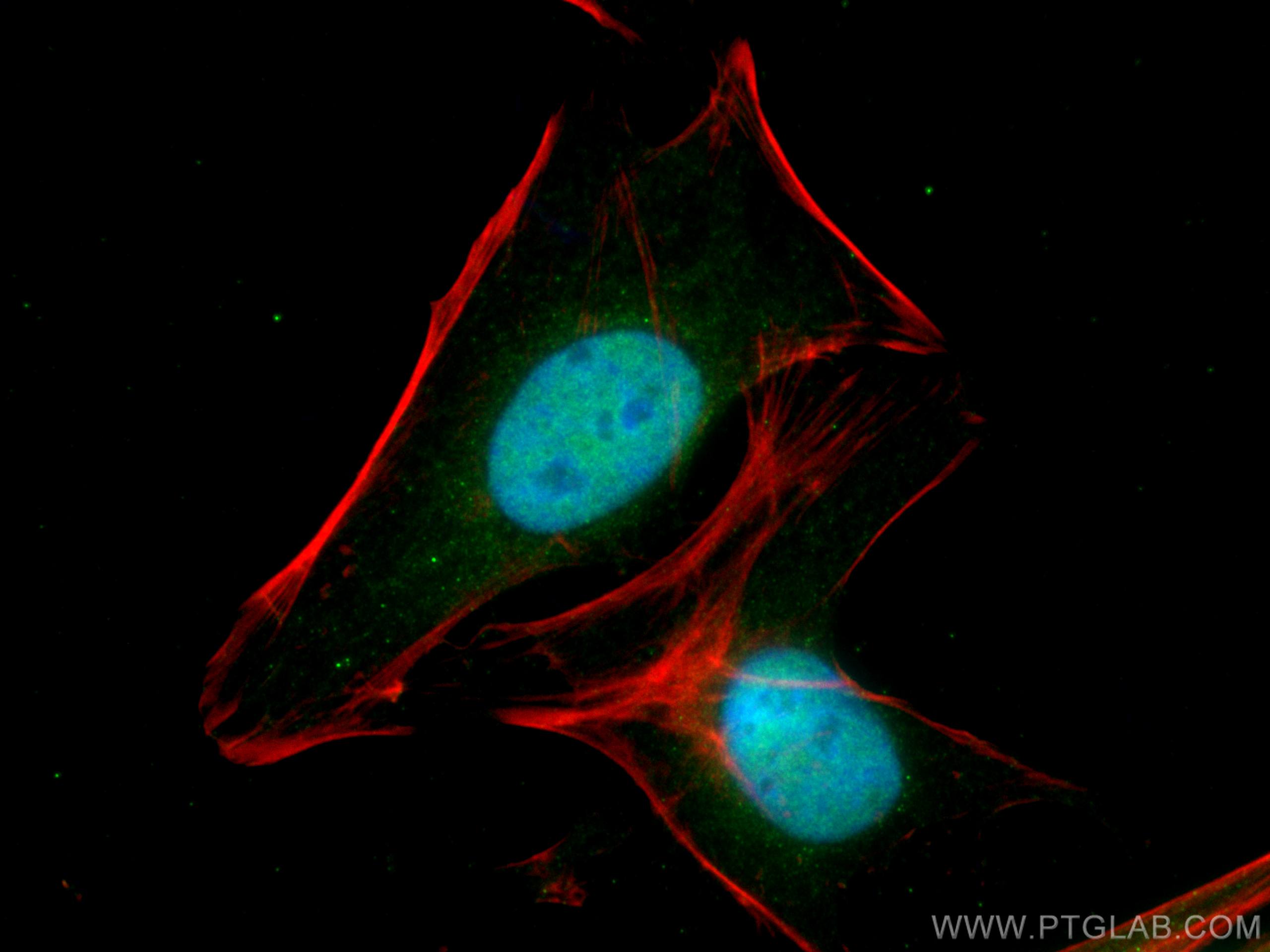Validation Data Gallery
Tested Applications
Recommended dilution
| Application | Dilution |
|---|---|
| It is recommended that this reagent should be titrated in each testing system to obtain optimal results. | |
Product Information
67851-1-PBS targets RUVBL2 in WB, IHC, IF/ICC, Indirect ELISA applications and shows reactivity with Human, mouse, rat samples.
| Tested Reactivity | Human, mouse, rat |
| Host / Isotype | Mouse / IgG2b |
| Class | Monoclonal |
| Type | Antibody |
| Immunogen | RUVBL2 fusion protein Ag0253 相同性解析による交差性が予測される生物種 |
| Full Name | RuvB-like 2 (E. coli) |
| Calculated molecular weight | 51 kDa |
| Observed molecular weight | 51 kDa |
| GenBank accession number | BC000428 |
| Gene Symbol | RUVBL2 |
| Gene ID (NCBI) | 10856 |
| RRID | AB_2918610 |
| Conjugate | Unconjugated |
| Form | Liquid |
| Purification Method | Protein A purification |
| UNIPROT ID | Q9Y230 |
| Storage Buffer | PBS only , pH 7.3 |
| Storage Conditions | Store at -80°C. |
Background Information
RUVBL2 belongs to the conserved ATPases associated with various cellular activities (AAA+) protein subfamily, which is characterized by the presence of conserved Walker A and B motifs that are involved in ATP binding and hydrolysis. The AAA+ (ATPases associated with diverse cellular activities) ATPases, RUVBL1 and RUVBL2, were originally isolated as components of transcriptional complexes and shown to function in a number of different cellular processes, including transcriptional regulation, chromatin remodelling and DNA damage responses. (PMID: 31572066, PMID: 31138842)



